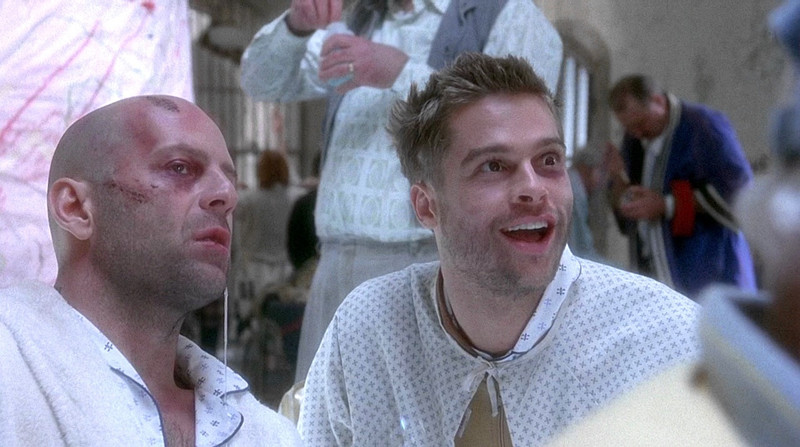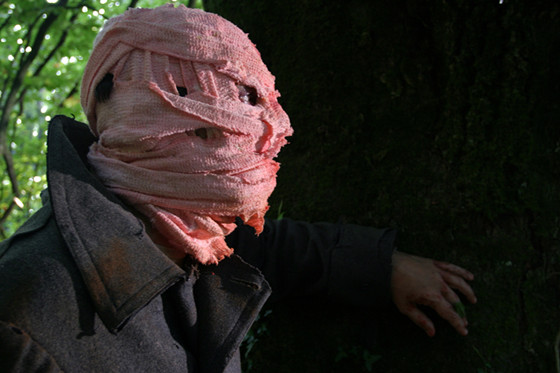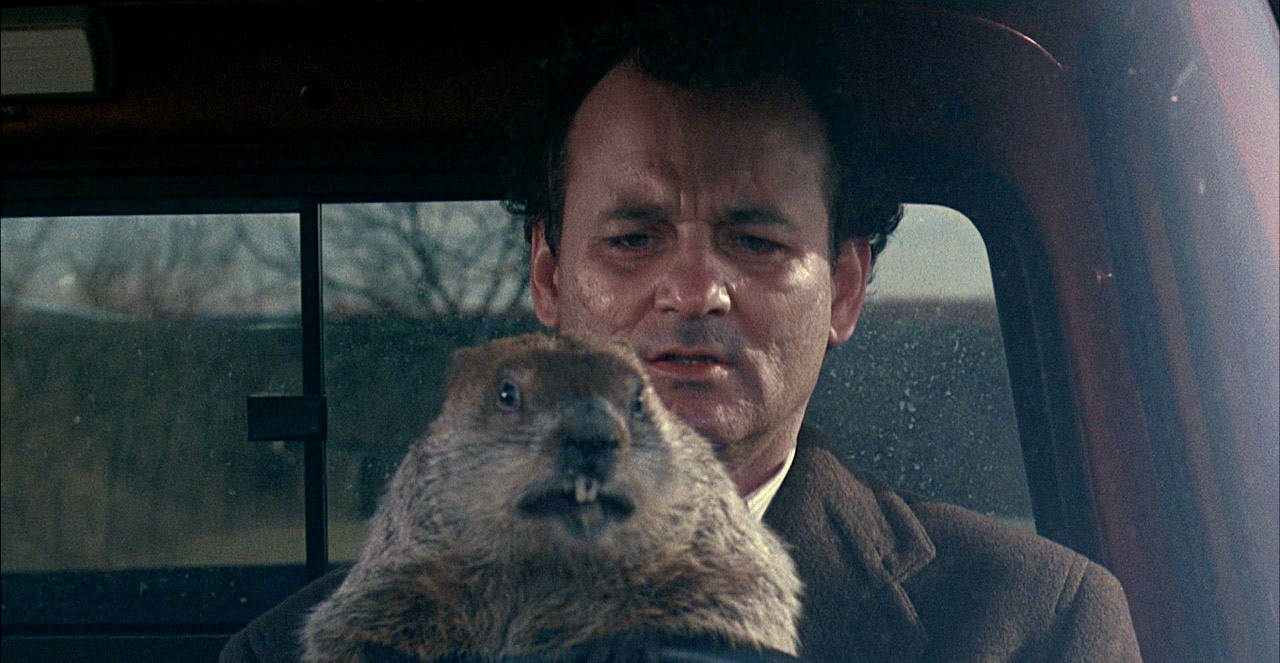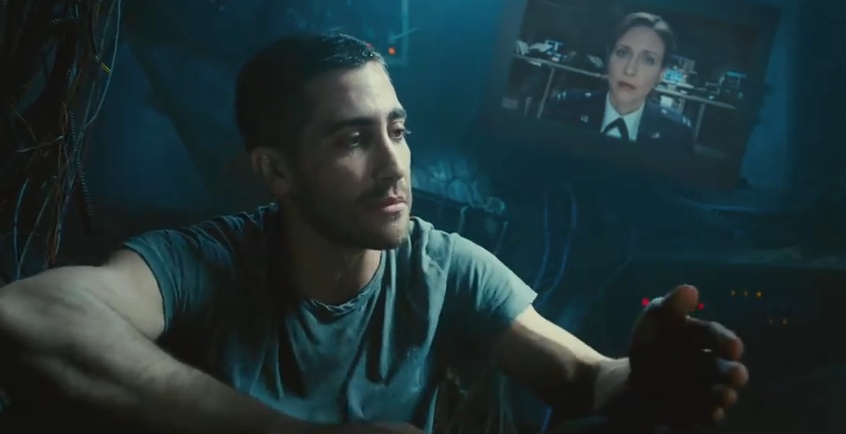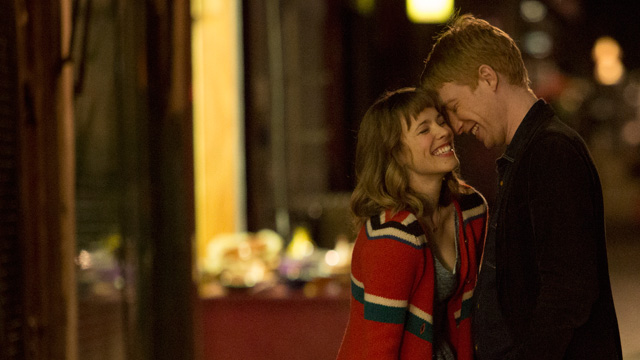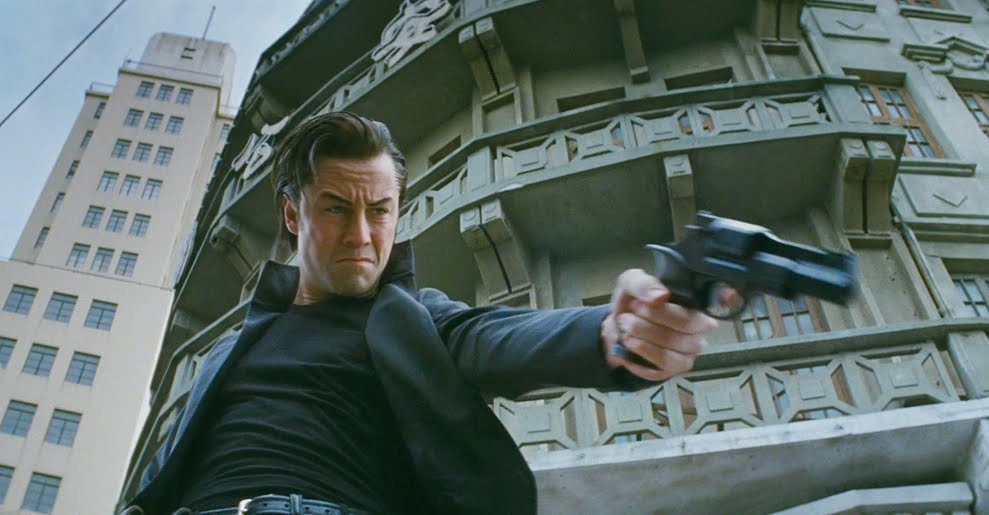14. Twelve Monkeys (Terry Gilliam, 1995)
Inspired by one of the greatest short films ever made, La Jetée by Chris Marker, which is still coming up on this list, Twelve Monkeys is directed by Terry Gilliam and stars Bruce Willis, Madeleine Stowe and Brad Pitt. The film is part of Gilliam’s dystopian trilogy, which started with Brazil and was recently concluded with The Zero Theorem.
The central premise of Twelve Monkeys is time travel. In a future society a plague has wiped out most of the earth’s population and those who are still alive are forced to live in underground caves as the air outside is poisonous.
In this world, James Cole (Willis) is a convicted criminal, who gets the chance to be pardoned if he agrees to undertake a dangerous mission by travelling back in time to obtain a sample of the virus and find out more about a terrorist organisation called The Army of the Twelve Monkeys, which was involved with the outbreak of the virus.
He is first mistakenly sent back to 1990, where he ends up in a psychiatric ward and meets Dr. Railly (Stowe) and the crazy son of a virologist named Jeffrey Goines (Brad Pitt). After being brought back to 2035, he is sent off again, first arriving in WWI, before finally reaching 1996, the year he was always intended to end up and where he will have find out if Goines and his organisation are behind the outbreak of the virus.
Giving Terry Gilliam the greatest commercial success of his career, 12 Monkeys is an intricately scripted time-travel flick, taking place in various times and dealing with dreams, madness and a world which has gone to pieces. Gilliam manages to get some excellent performances from his cast, with Willis putting in one of his career’s highlights and Pitt arguably proving for the first time that he was far more than just a pretty face (along with Seven, which was released the same year).
Whilst falling short when compared to its brilliant source material, 12 Monkeys is a zany and fun sci-fi flick that seems to be bursting at the seams but ultimately still manages to keep things together. The film received two Academy Award nominations, including one for Brad Pitt as Best Supporting Actor. And whilst he did not win it, he managed to take home the same prize in the same category at the Golden Globes that year.
13. Timecrimes (Nacho Vigalondo, 2007)
Yet another amazingly assured directorial feature film debut, Timecrimes is a low budget and criminally underseen Spanish time travelling thriller directed by Nacho Vigalondo, who also wrote the screenplay as well as appearing in the movie himself.
Timecrimes tells the story of a man who is spending the weekend in the country with his girlfriend. He spots a beautiful woman in a nearby house undressing and goes to examine things close-up. When he arrives he finds the woman lying in the grass and is attacked by a man with a bandaged face.
He flees, finds refuge in a nearby research facility and is offered a place to hide by a scientist. When he emerges from his hiding place it turns out he was led into a time machine and that he has traveled one hour back in time. And so starts an increasingly bizarre sequence of events.
With virtually no special effects and basically taking place in one extended location, Timecrimes completely relies on it’s intricate plot and the conundrums of time travel. Upon closer examination it might not make that much sense but whilst the ride lasts, it’s certainly a fun one.
Timecrimes won Best New Artist/Film Awards from the Austin Film Critics Association, the Cinema Writers Circle in Spain and at the Turia Awards, whilst also winning Audience Awards at both the Philadelphia and the New York City Horror Film Festivals. In addition, it won major prizes at both the Amsterdam and Austin Fantasy Film Festivals and was nominated for Best Film at Stiges.
12. Groundhog Day (Harold Ramis, 1993)
Based on a story by Danny Rubin, who adapted it to a screenplay along with director Harold Ramis, Groundhog Day is a hilarious romantic comedy-fantasy starring Bill Murray and Andie MacDowell.
Phil Connors (Murray) is a TV weatherman for a local Pennsylvania television station. On air he’s easy-going and amiable but in real life he’s an arrogant and self-centered man, who treats all those around him with disdain.
So when he, his producer Rita (MacDowell) and cameraman Larry (Chris Elliot) are sent to the small town of Punxsutawney to cover their yearly Groundhog Day event on February 2nd, in which a groundhog will supposedly tell the length of the winter, Phil is filled sarcasm and can’t wait to get the assignment over and done with. He covers the event but his team is forced to spend the night in town when a severe snowstorm hits. To his surprise, he awakes the next morning to what appears to be February 2nd Groundhog Day again.
Worse still, the same thing keeps happening day after day and Phil is seemingly forced to relive the same day till the end of time, whilst everybody else seems to live it like it’s their first time around. And as he endlessly keeps going through it, Phil starts to take note of those around him and slowly actually begins caring for them as he falls in love with Rita.
Featuring one of Bill Murray’s quintessential and most beloved roles, Groundhog Day takes a fantastic premise and runs with it wonderfully. Mining loads of humor from constant repetition and Murray’s response to it, the script is a comic gem whilst Harold Ramis manages to treat it with enough realism to make one accept the outrageous concept. But ultimately this is Murray’s movie as he perfectly captures the grumpy misanthrope with his deadpan delivery who is forced to change his ways by being imprisoned in the same day in the same boring town.
Groundhog Day won a BAFTA Award for Best Screenplay, Best Comedy Film at the British Comedy Awards and was actually was added to the United States National Film Registry in 2006 on account of being “culturally, historically or aesthetically significant”.
11. Source Code (Duncan Jones, 2011)
The follow-up to Duncan Jones’ directorial debut Moon, Source Code is another intelligent science fiction thriller which is maybe best described as if Groundhog Day would have been a Twilight Zone episode.
A Chicago train is blown up in a terrorist attack and Captain Colter Stevens (Jake Gyllenhaal) finds himself on board, seemingly in the body of another person. After the explosion Stevens earns that he is in fact inside a “Source Code” device, which allows him to be sent back into the past and into someone else’s experiences repeatedly, which allows him to gather clues on the attack. As he Stevens gets sent back again and again, he keeps getting closer to revealing the identity of the bomber and possibly even preventing the attack despite assurances that the past can not be altered.
An ingenious science fiction thriller, which benefits from Gyllenhaal’s central performance, Source Code was a change of pace for director Jones, who burst onto the scene with the smaller, quieter Moon. A great ride for those who love a smaller and well scripted science fiction film or a good Twilight Zone episode.
10. About Time (Richard Curtis, 2013)
Written and directed by Richard Curtis, About Time is a surprisingly fresh romantic comedy-drama from the director who is known for his Hugh Grant vehicles, which is partly because its unusual plot device for the genre: time travel.
Tim Lake (Domhall Gleeson) is a lonely young man from Cornwell, who, on the day of his 21st birthday, is told by his father (Bill Nighy) that the men in their family somehow have the ability to travel back in time although they are only able to go back to previous experiences from their own lives. After having been warned not to use this ability to gain financial wealth, Tim figures that the gift might come in handy when trying to get a girlfriend.
After a first attempt on a friend of his sister fails and he realises that going back in time won’t change someone’s felling about him, he moves to London to study and meets Mary (Rachel McAdams) during a night out on the town. The two are attracted to each other and Mary gives Tim her number but when he travels back in time to help out a friend, he discovers that he lost the number as the night out now never occurred.
But Tim remembers that Mary displayed a particular interest in Kate Moss and by going to an exhibition on her, he manages to find Mary again, although she now has a boyfriend. And so begins a lengthy set of time alterations, which successfully see the two get together, get married and have kids but which also teach Tim some serious lessons about enjoying the present.
Unsurprisingly, the time travel concept is not the best worked out aspect of About Time as it’s still, first and foremost, a romantic comedy. But what director Richard Curtis does manage to do is use the concept to his advantage by clearly letting it fuel his central theme of living and loving in the present. On top of that, the film boots great performances from its two leads as well as another charming turn by Bill Nighy, making this another successful outing in the genre.
If you can’t stand romantic comedies, About Time is not going to change your mind with its addition time travel, but if you’re not opposed to this type of thing the film is great addition to the genre with some magical realism thrown in to add a little something extra. About Time received three Saturn Award nominations from the Academy of Science Fiction, Fantasy and Horror Films for Best Film, Best Supporting Actor and Best Editing.
9. Looper (Rian Johnson, 2012)
Written and directed by Rian Johnson, Looper is a 2012 science fiction film with strong film noir sensibilities starring Joseph Gordon-Levitt, Bruce Willis and Emily Blunt.
The year is 2044 and time travel has not yet been invented. I was, however, be invented 30 years later but also immediately outlawed and appropriated by the mob who use it to send people they need to get rid off back in time to be killed by assassins known as Loopers.
Joe Simmons (Gordon-Levitt) is one of those Loopers and has been getting rid of people for some time now, reaping substantial financial benefits. But when one day he finds himself confronted by his latest victim, which turns out to be his older self (Willis), he hesitates for a moment and old Joe manages to escape.
The punishment for this is execution so younger Joe needs to “close the loop” and eliminate older Joe but things complicate further when it becomes apparent that a future crime boss called The Rainmaker is cancelling all Loopers and old Joe saves young Joe, only to inform him that he needs to take out the Rainmaker in order to save young Joe’s future wife.
Leave it to the director of Brick and The Brothers Bloom to come up with a fresh take on time travel in a movie. Featuring some great action scenes as well as whip smart and original time travel screenplay, Looper combines thrills, humor, romance and noir elements to come up with a something quite unlike any other film in the genre.
Add to that a great Bruce Willis impersonation by Joseph Gordon-Levitt and the sheer fun of seeing these two on screen together playing younger and older versions of the same person and you have yourself one of the most intelligent as well as entertaining sci-fi flicks in recent memory.
Looper was nominated for four Saturn Awards by the Academy of Science Fiction, Fantasy & Horror Films (for Best Science Fiction Film, Actor, Director and Editing) and won no less than six different Awards for best Screenplay from various critics circles as well as the National Board of Review.
8. Midnight in Paris (Woody Allen, 2011)
The fortieth feature film written and directed by Woody Allen (and that’s not even counting his TV movies nor What’s Up Tiger Lily?) and his greatest box-office hit, Midnight in Paris is a romantic fantasy comedy starring Owen Wilson, Rachel McAdams and Marion Cotillard.
Gil Pender (Wilson) is a successful Hollywood screenwriter who has come to Paris on holidays with his fiancée Inez (McAdams) and her conservative parents. Gil has been trying to finish his novel and wants to move to Paris, being unsatisfied with his career as a screenwriter in Hollywood but Inez thinks that’s all nonsense.
Then one night, Gil gets drunk as he’s walking the streets at midnight, a vintage car filled with people dressed in 1920’s attire stops next to him and he’s invited to come along. He does after he arrives at the party, it becomes apparent that he has actually been transported back in time and is hanging out with his idols from the era.
As he leaves the party to get his manuscript to show to Gertrude Stein, the promptly finds himself back in the present again. To the dismay of his fiancée, Gil keeps going out every night after, returning to the past, where he starts to fall in love with Picasso’s mistress Adriana (Cotillard). But when the two are taken back further in time to the 1890’s, the era Adriana idolises, Gil learns that people from different ages all long for their own romanticised “olden days”.
A great critical as well as financial success, Midnight in Paris is often considered one of Allen’s best later works. The film looks stunning with cinematographer Darius Khondji making Paris look even more spectacular than it already is and the screenplay is a gem, perfectly balancing romanticism, fantasy and comedy.
Owen Wilson makes for a perfect stand-in for a character Woody Allen would probably have played had he been younger and the film has an incredible supporting cast to make a range of icons of various eras come to life. Amongst them are Kathy Bates as Gertrude Stein, Corey Stoll as Ernest Hemmingway, Tom Hiddleston as F. Scott Fitzgerald and a scene-stealing Adrien Brody as Salvador Dali.
Midnight in Paris was nominated for four Academy Awards, including Best Film and Director, and won one for Best Screenplay. It also won the same category at the Golden Globes, the Goya Awards, the Online Film Critics Society and the Broadcast Film Critics Association Awards.
